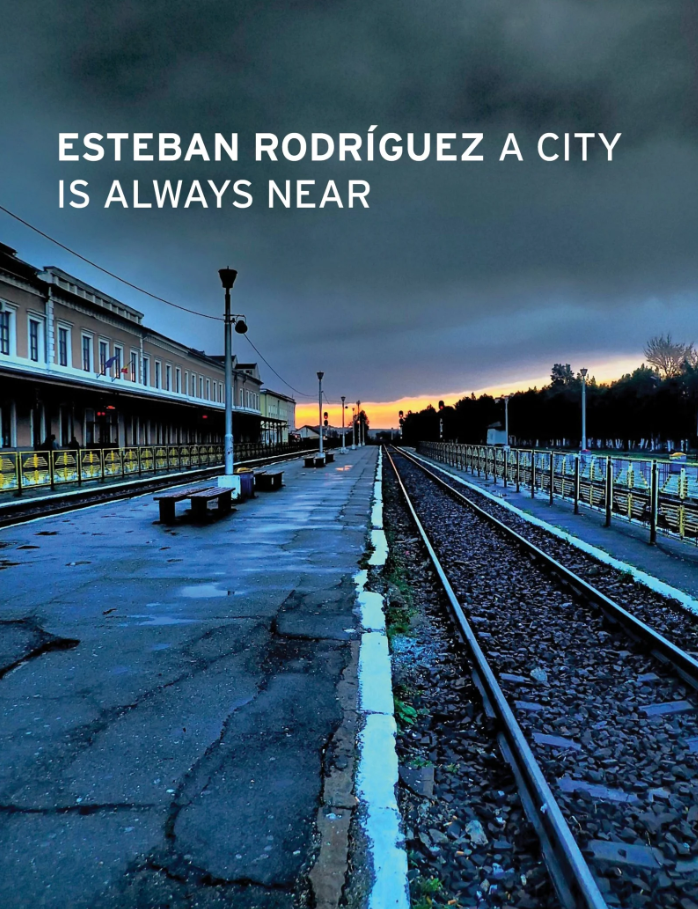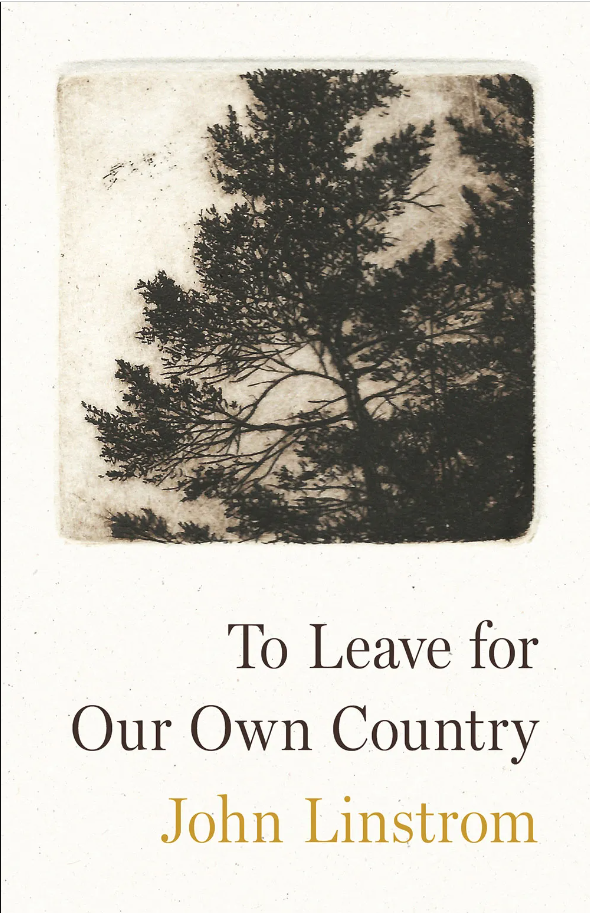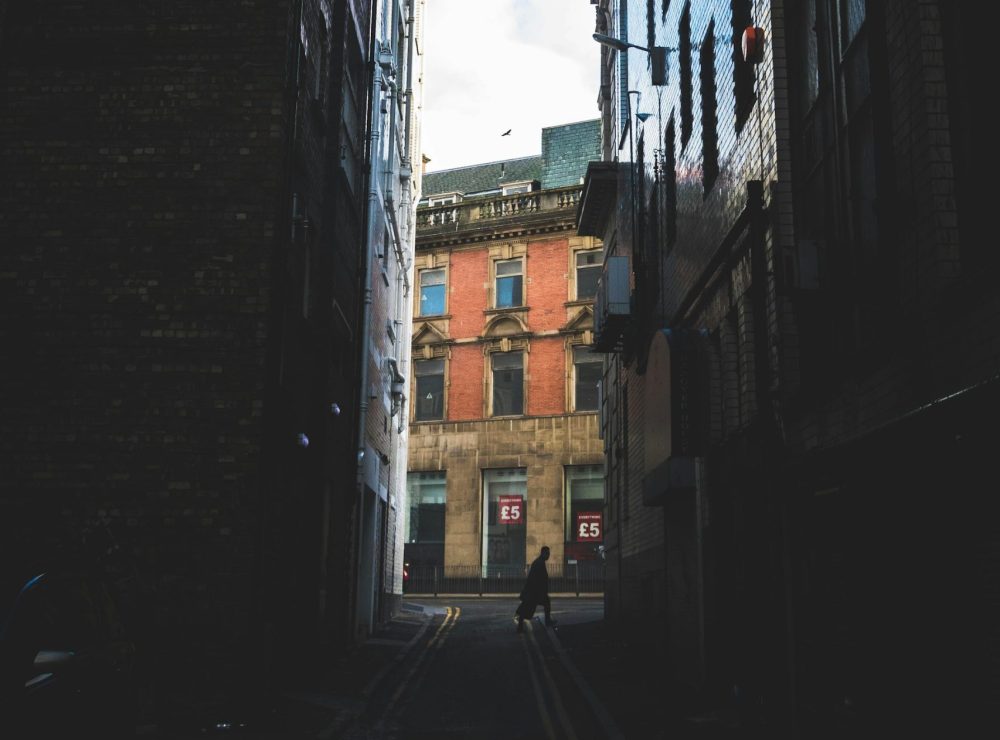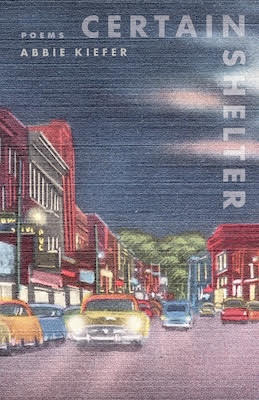When asked in an interview about her relationship to her home state, Maine novelist Elizabeth Strout balked. “That’s like asking me what’s my relationship with my own body,” she said. “It’s just my DNA.”
That’s how I feel too—that Maine, where I was born and lived until my mid-20s, is so central to my selfhood that its significance is impossible to articulate. I can’t stop trying though. In my debut collection, Certain Shelter, the poems consider the potato harvest and the shut-down paper mills and the cold rolling in from Casco Bay and how living amid all of it has made the speaker wary, perhaps, but also tender. This is a person willing, in her measured Yankee way, to belong to a place that she knows cannot fully last. I love her for it.
Like my speaker, I think often about the places we belong to or from which we are exiled—by choice or otherwise. That fascination emerges often in my writing but also in my reading. I keep reaching for books that give keen attention to a particular geography and the complexities of connection between a place and its people. It’s a pleasure to recommend eight such collections here.

A City is Always Near by Esteban Rodríguez
Part of Bull City Press’s Inch series, Rodríguez’s chapbook is small—when held open, about the size of a postcard. That’s fitting for a collection in which each poem is dispatched from and titled for a particular place: Chicago, Weslaco, Punta Cana, Las Vegas. As a visitor in these cities, the speaker’s experience is informed by his identity as a Texan and the son of Mexican immigrants.
In these poems—tight, inviting narratives in which no detail is wasted—we often see the speaker set apart: quietly studying photos at Ellis Island and considering his family’s very different immigration story, buying coffee at the Kansas convenience store where the cashier won’t touch his hand. When he imagines he’s being mocked by a waiter in Frankfurt, he thinks of his father ordering at a restaurant back in the U.S. “with Spanish still heavy on his lips, / still fatigued with uncertainty, diaspora….” And while the speaker’s unease is apparent, so is the pleasure he takes in traveling with his loved partner or hearing Mexican Spanish on a London bus. After a day spent walking New York, he arrives at the Brooklyn Bridge sweaty and chafed, where he can “believe that sometimes / there is no joy without a little bleeding.” Through these poems, we become witnesses to that joy and to joy’s potential cost.
Glitter Road by January Gill O’Neil
The poems in Glitter Road that explore the speaker’s “Mississippi season” make themselves obvious, appearing grouped together in subsections, with titles that often include location names. At first, this seems like a dichotomy, with the poems of the speaker’s life as a parent, partner, and Black woman in New England set in contrast to the poems of the South, many of which address the region’s legacy of enslavement. It’s a smart organizational choice by O’Neil. The speaker, we learn, grew up in the South, and has returned in part “[t]o love the magnolia and lament the smell. / This place is not finished with me.” The speaker, like we are, is experiencing dichotomy. Love and lament, offered in poems so sonically pleasing that the ugliness they confront is doubly staggering. And the speaker doesn’t allow anyone to look away from it—herself included. In “Rowan Oak,” she drinks wine and dines on oysters at an estate that once depended on the labor of enslaved people. “Praise every / complicated bite,” she says of a stew made from the meal’s leftovers. “Each spoonful becomes a memorial, a reckoning.”
Leaving Biddle City by Marianne Chan
Biddle City is a myth—one that says Lansing, Michigan, was founded when settlers bought neighboring land that proved unusable. “And we have a lot in common / with the scammed people who came and built a life / in Biddle City. Like them, it was not an America / we expected,” Chan writes. This we includes the Filipina American speaker, her family, and their community in Michigan—made up mostly of women who immigrated for marriage or employment opportunities, Chan explains in the collection’s notes.
While the title prepares us for the speaker’s departure from Biddle City and we read the book through that lens, the poems address her experiences growing up there and her work as an adult to understand its impacts. She calls it her “brief and little home,” but it is so prominent in her memory that it’s become the focus of a full collection: prose poems and haiku and variations on pantoums in which the repeated lines change a little each time so we have the sense that as the speaker considers this place—where “[e]verything was a rectangle,” where she was one of two Asian girls at her school—she is remaking the story, just a little. She is making her own myth. “My brother and I talk about Biddle City all the time now. // Each time, we think of something new to remember.” Biddle City holds the speaker. In a book as immersive as this one, it holds us too.
Mom in Space by Lisa Ampleman
In a lyric essay that comprises the central section of her collection, Ampleman explains how she came to be fascinated by space travel: a museum exhibition of the Apollo 11 command module that carried Neil Armstrong, Buzz Aldrin, and Michael Collins to the moon for the first lunar landing in 1969. You can imagine what she might have been thinking as she viewed the vehicle—how much was asked of those astronauts, doing momentous but necessarily lonely work.
A space launch is also a launching into foreignness and vulnerability. It’s from that viewpoint—and through the language of space travel—that the speaker explores domestic life, infertility, motherhood, and the burden of chronic disease. Giving birth becomes a flight mission: “Dear shear pins—shaved off as the launch system // rises, unhurried—be divided.” She loves her partner like “docking latches, pneumatic system / powered by nitrogen, holding / space modules together.” She takes fertility medication to “make the eggs / inside her develop, fertile, / moons that wax gibbous” while medication for an autoimmune disease puffs her face like an astronaut’s “in the fluid shift of microgravity.” In less capable hands, such references could have become tiresome but Ampleman deploys them in ways that feel intrinsic and necessary and often surprising. Unlike Aldrin’s gold visor, which “still reflects whatever’s / in front of it,” these poems offer new imagery, merging the intergalactic and the quotidian to strange and satisfying effect.
Reaching the Shore of the Sea of Fertility by Anna Laura Reeve
As Reeve’s speaker faces personal unrest—pregnancy loss, the exhaustion of parenting, her partner’s degenerative disease, the demands of art-making—she returns again and again to the natural elements of her environment. She stands among the harbor beech that are reclaiming Andrews Bald, she lets “the ribcage of Earth” rise and fall under her. She names the flora and fauna and topography of southern Appalachia with such specificity that the naming becomes a litany—not one of tedium but a way of saying you exist in this place.
Which isn’t to say that she’s perfectly at peace. “How content, in this place, is each thing / to be what it is,” the speaker observes—about things, but perhaps not people. “My heart goes one way, my body goes another,” she later admits. These poems are generous with the reader—so emotionally forthright that we are with the speaker in her disquiet. We see, as she does, how even the foamflowers can be “open like kids’ hands, asking for something.” And when she talks about the holy basil, we hope she’s telling us something about herself as well, all of us watching as the plant “shoulders aside / rosemary, valerian, and lavender / so its large wings can open.”
The Sky was Once a Dark Blanket by Kinsale Drake
“I think I remember stories because they are violent. // Or because there is music,” writes Drake in a collection that considers both brutality and musicality, often drawing connections between them. Its speaker “must sing / the hum of the yucca // and the icy heartbeat / of river” even as that river has been dammed, its water robbed. When the desert moans at night, it brings the smell of a bloody nose. In “Put on that KTNN,” Hank Williams “rolls in / all over again, easy and easy // and blue” above a desert that was, in another geologic era, “thrashed by thunderstorms and sea.”
Drake’s poems, lyrical and expansive, are often situated in or near the Navajo Nation, offering personal and collective histories tightly linked to the land. In Monument Valley, “the rocks look like women, hushed together.” The Badlands are “gray teeth swimming in ghosts.” Throughout, the land is a dynamic presence—a character as real and living as the speaker, who chooses not to alienate herself from it, even when connection feels tenuous or demanding. Driving in Long Beach, the speaker is reminded “this city is homeland, too / though it burns more often. // So we speak kindly to the land / when we can.” If the burning is violence, the kind speech is music. And like the speaker, we remember each.
Stray Latitudes by Dan Leach
In Stray Latitudes, the language of the poems is often as spare as their landscapes: a closed-down mall, the alley behind the Harris Teeter grocery store, half-built suburban neighborhoods on which work has been stopped. This isn’t to suggest that the pieces are bleak or barren, but they acknowledge isolation and uncertainty, often with gentleness and acceptance. When the speaker finds a dead owl on a quiet dirt path, he thinks its eyes ask “why here” and he’s too cold to stop but carries the question with him. When a real estate agent says she can imagine him living in the house she’s showing, “[w]hat she means is that lived life / is still ahead of us, perfectly open, / and that no one has ever felt lonely / in the place where we are standing.” We—the readers and the speaker—recognize loneliness is inevitable. Questions are inevitable. Can we make peace with them? The speaker thinks so. “The only lesson / I hope to teach them,” he says of his four children, “is that doubt is its own / kind of worship, / and that the water / you drink as you wander / this desert of unknowing / must always be love.”

To Leave for Our Own Country by John Linstrom
In a poem set in the Museum of Modern Art, visitors have come to witness “a bit of domesticity and dream, / a place to spend some time, but while we swirl // the dust of other homebodies around / in rooms of light and shade, we’re bound to float // where we have flown before.” This image—of seeking beauty in the world, and of seeking to understand it—is central to Linstrom’s collection, as is the tendency of people to return to the familiar. To want to belong to a place.
This collection also belongs to places. Its first three sections are named for specific states or a city—geographies to which the speaker gives a quiet, sharp attention. The foam from the Con Edison plant on the East River is considered as closely as the whitecaps of Lake Michigan, and there’s a loveliness to all of it, though with the specter of danger. Climate change. The death of loved people. The speaker describes his city as “a room resonant with confusion and us.” He is honest about surrounding sadness and earnest in his desire to counterbalance it: “We love this world so; we pour into it.”
Read the original article here

